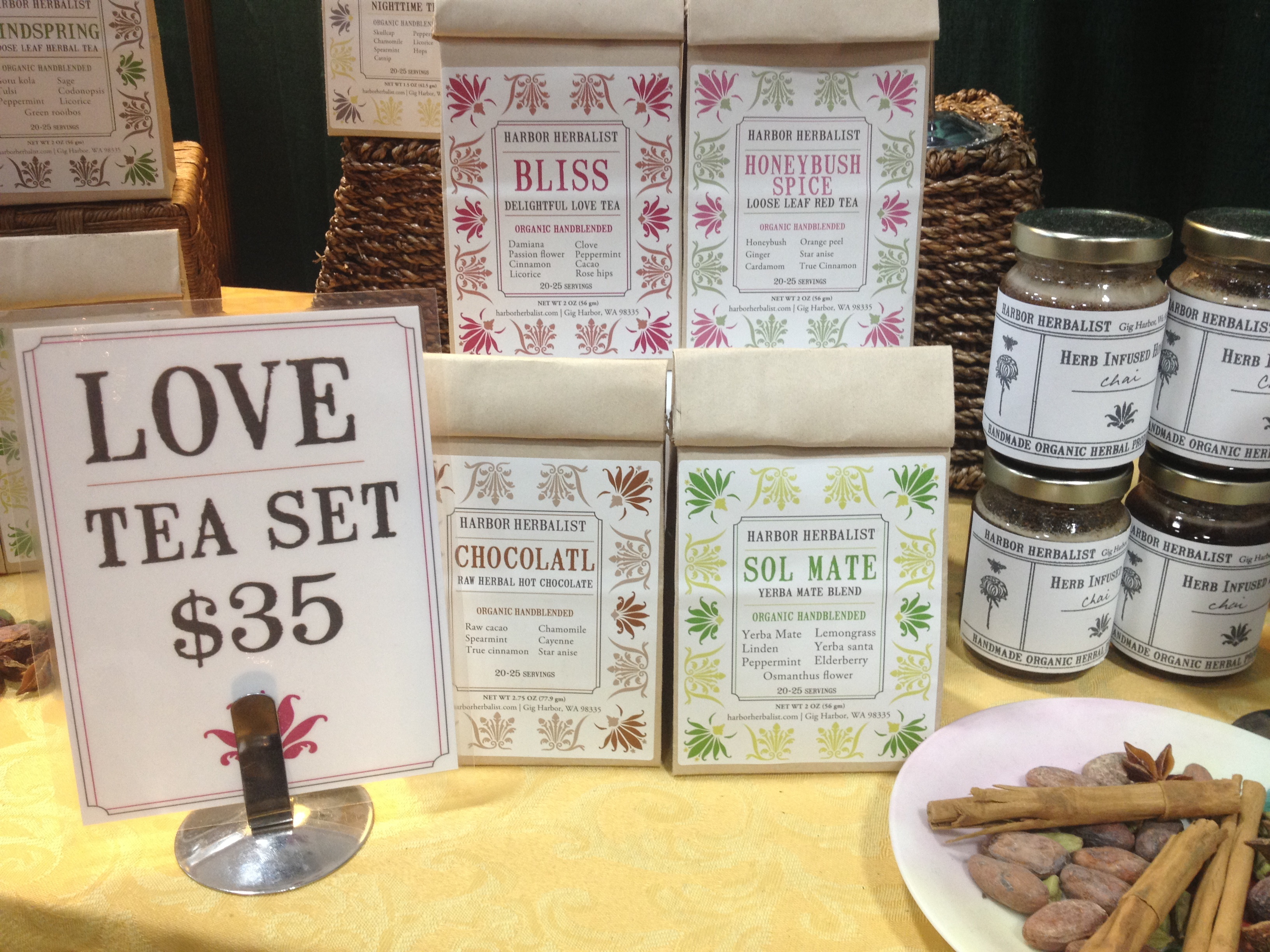Maybe it’s spring allergies that send you sniffling to the Harbor Herbalist booth at the U District Farmers Market; maybe it’s the display of antique tea cups with mounds of bright herbs that draw you in. Regardless, as you pitch your double espresso (or tattered tissue) and start surveying teamaker Sarah Farr’s 17 teas—ranging from Wellness to Nursing Mama to Indulge—you may wonder just where you’ve landed. Is this a farm stand? A pharmacy? Both, actually: it’s hand-crafted organic herbal teas, most with medicinal qualities, made from many locally grown and wildcrafted herbs.
“I always wanted to be a medicine maker,” says Farr who initially began exploring herbalism through nutrition and vegetarian cooking, then herbal internships and further self-study. “I really like making safe herbal remedies. The experience of drinking medicinal teas and seeing the positive effects they have on the body can truly empower people in regard to their own health.”
In addition to blending herbs for her teas, Farr, who never gets sick, also thrives on gathering them—especially those she can wildcraft (herbalist term for forage) locally, such as nettles, dandelions, yarrow, and elderflower and berry. She also grows what she can on a farm on Vashon Island (e.g. mint, catnip, tulsi, burdock) and sources the rest (organic and Fair Trade certified) from abroad.
About two thirds of Harbor Herbalist’s teas have medicinal qualities (e.g. Digest, Strength (for women’s reproductive systems)) and the remaining third are simply “soothing and delicious,” not for a particular ailment (e.g. Bliss Love Tea, Honeybush Spice). Find them at Whole Foods in Bellevue and Roosevelt and a range of restaurants, including Sitka and Spruce, Terra Plata, the Corson Building, and Bar Sajor (whose house tea is Farr’s).
Even better, find Farr herself at the U District and Ballard Farmers Markets weekly, where no herbalist question is too naive: which teas should be infused (leaves, stems, and flowers) and which decocted/simmered (roots, barks, and seeds); how long they should steep; why herbs are medicinally best in combination (rather than solo); if there is anything ginger is not good for… Just ask and she’ll even offer recommendations for a daily tea ritual to help “check in” with oneself or others.
Whether responding to an ailment or just fixing an afternoon treat, Farr believes that “Brewing yourself a pot of tea is a meditation in itself.”
Mmmm. Feeling better already? To welcome spring in top shape and facilitate your own tea ritual, Farr also offers a monthly Bird’s Eye tea subscription of three teas made from in season herbs (enough for a cup a day), an herbal gift, and a newsletter for $22/month. Profits from subscription go toward ecological restoration work intended to increase the abundance of native food and medicine plants in Washington and Oregon.
“People get sick and go straight to hard core medicine because they think it’s the only option,” says Farr. “It’s not. There are way better options.”
To learn more about Harbor Herbalist, please visit: www.harborherbalist.com.
Bird’s Eye Tea subscriptions: www.birdseyetea.com.




